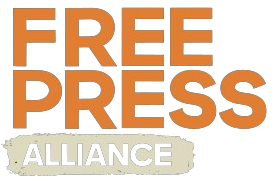Shatha Hajj Mubarak, a journalist imprisoned in Messaadin Prison in Sousse since July 2023 for her work with Instalingo, a media production company, has begun an open-ended hunger strike as of May 14. The protest comes in response to the continued denial of essential medical treatment for her worsening spinal and hand pain, along with high blood pressure, conditions stemming from earlier untreated health issues.
Hajj Mubarak is currently serving a five-year sentence under Tunisia’s controversial Decree-Law No. 2022-54 on Cybercrime, widely criticized for suppressing freedom of expression. Since her arrest, authorities have reportedly barred her from receiving visits from lawyers or family members, pending an appeal hearing.
The National Syndicate of Tunisian Journalists (SNJT) has condemned her treatment and held both the Ministry of Justice and the General Directorate of Prisons and Reform fully accountable for any further deterioration of her physical or mental health. The union highlighted that the ongoing neglect of Hajj Mubarak’s condition violates both international human rights conventions and Tunisia’s own prison laws.
Specifically, the SNJT referenced Article 17 of Law No. 52 of 2001, which guarantees “every prisoner the right to free medical treatment and medication within prison, or, if not possible, in hospital institutions upon the recommendation of the prison doctor.”
The syndicate urged immediate and urgent action to provide Hajj Mubarak with proper healthcare and alleviate her suffering under harsh detention conditions. It also reiterated its demand for her release, emphasizing that her continued incarceration poses no threat to public safety and undermines the principle of presumption of innocence.
The Committee to Protect Journalists (CPJ) echoed these concerns. “Tunisian authorities must ensure Hajj Mubarak receives proper medical attention and should release her immediately, as she never should have been imprisoned in the first place,” said Carlos Martínez de la Serna, CPJ’s program director.
At Free Press Alliance, we join the call for her immediate release and urgent medical intervention. Denying her healthcare violates basic human rights and endangers her life. Authorities must reconsider her detention and act in accordance with national and international legal obligations.

